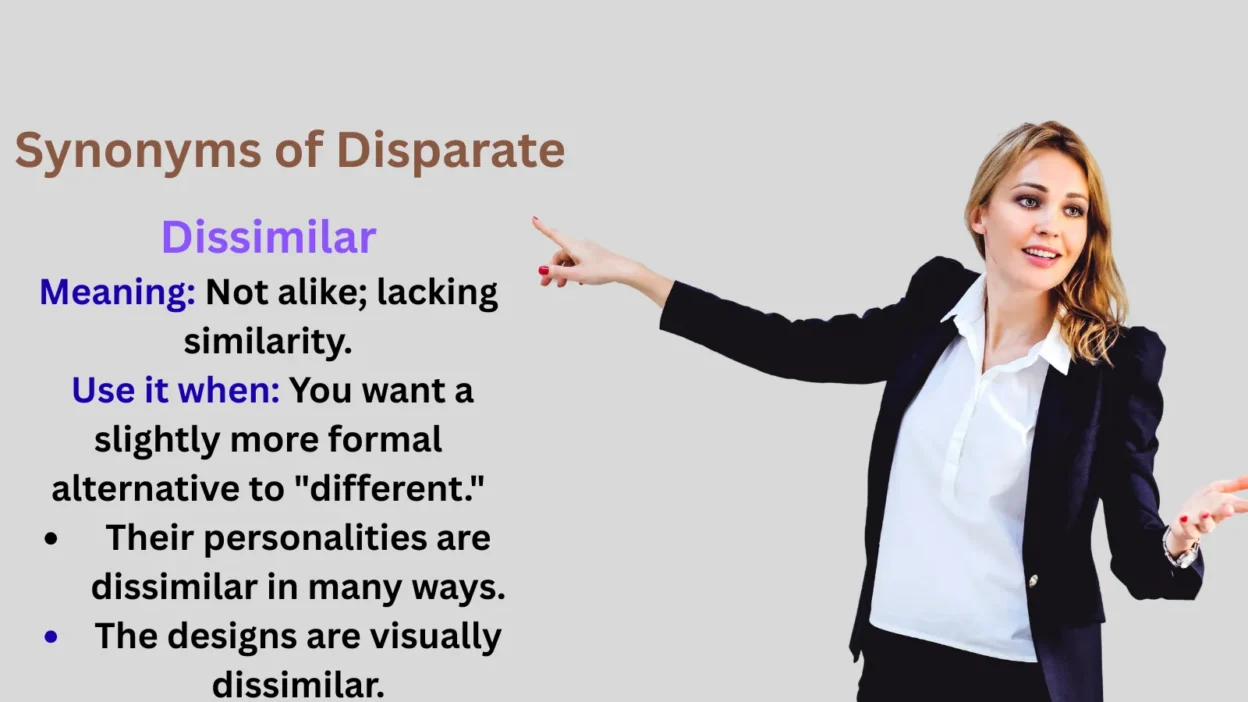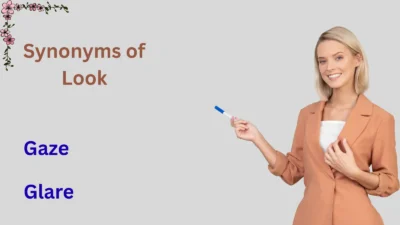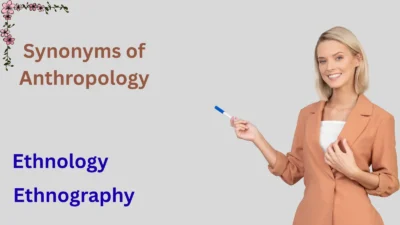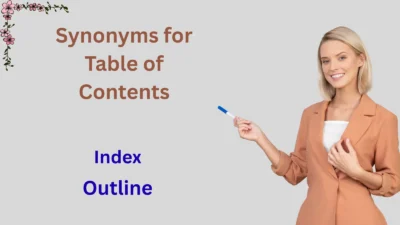The word disparate means things that are very different, so different that they can’t be compared simply. Think of apples and screwdrivers—both exist, but they have nothing in common. In writing, disparate is used to show contrast, diversity, or ideas that do not fit together. It is a strong word, but sometimes it can feel too formal or heavy. That is why learning the Synonyms of Disparate is so helpful.
With the right synonyms, you can express “very different” in ways that feel natural, clear, and less textbook-like. Words like unlike, diverse, contrasting, or incompatible can give your writing a smoother tone. In this guide, you’ll find 30 powerful alternatives to disparate.
Each synonym comes with a meaning, notes on when to use it, and two simple example sentences. These choices will help you write with variety and make your ideas easier to understand.
What Does Disparate Mean?
Disparate means essentially different in kind, not allowing for direct comparison. It often implies more than just surface-level contrast—it suggests things are inherently unlike.
Examples:
- “The report compared two disparate economic models.”
- “Their views were too disparate to find common ground.”
Tone-wise, disparate is formal, intellectual, and suited for academic, business, or analytical contexts.
Synonyms of Disparate (With When and How to Use Them)
1. Different
Meaning: Not the same; distinct in nature or form.
Use it when: You need a general, everyday word.
- They come from different backgrounds.
- The two ideas are fundamentally different.
2. Dissimilar
Meaning: Not alike; lacking similarity.
Use it when: You want a slightly more formal alternative to “different.”
- Their personalities are dissimilar in many ways.
- The designs are visually dissimilar.
3. Unrelated
Meaning: Having no connection or relationship.
Use it when: Highlighting a lack of relevance or association.
- These facts are completely unrelated.
- The stories are unrelated in theme and tone.
4. Divergent
Meaning: Tending to move or develop in different directions.
Use it when: Emphasizing a split or departure in thought or path.
- Their goals became increasingly divergent.
- The two cultures took divergent approaches to art.
5. Distinct
Meaning: Clearly separate and different.
Use it when: You want to emphasize clarity in difference.
- They represent distinct political ideologies.
- The flavors are distinct, not blended.
6. Contrasting
Meaning: Showing differences when compared.
Use it when: Comparing side-by-side differences.
- The contrasting colors made the design pop.
- Their opinions were contrasting but respectful.
7. Diverse
Meaning: Showing a great deal of variety or difference.
Use it when: Emphasizing range, especially in groups.
- A diverse team brings fresh perspectives.
- The museum features diverse exhibits.
8. Heterogeneous
Meaning: Composed of unlike parts; varied in composition.
Use it when: You want a scientific or academic tone.
- The population was heterogeneous in ethnicity and language.
- It’s a heterogeneous mixture of materials.
9. Polarized
Meaning: Divided into sharply opposing groups.
Use it when: Highlighting social or ideological conflict.
- The country is polarized on the issue.
- Their views are polarized and irreconcilable.
10. Incongruous
Meaning: Not in harmony or not fitting together.
Use it when: Something feels out of place.
- The cheerful music felt incongruous during the sad scene.
- An incongruous mix of styles clashed in the decor.
11. Incompatible
Meaning: Unable to exist or work together in harmony.
Use it when: Describing relationships, ideas, or systems that clash.
- Their values were incompatible.
- These systems are incompatible with older software.
12. Opposed
Meaning: Actively resisting or disagreeing with something.
Use it when: There’s active conflict or contradiction.
- The groups were opposed in principle.
- He felt opposed to the idea from the start.
13. Antithetical
Meaning: Directly opposed or contrasted.
Use it when: Making a philosophical or intellectual point.
- The idea is antithetical to our values.
- Freedom and oppression are antithetical.
14. Varied
Meaning: Differing in type, degree, or nature.
Use it when: Showing internal diversity within a group.
- A varied collection of essays.
- The participants had varied opinions.
15. Miscellaneous
Meaning: Made up of a mix of different kinds.
Use it when: Emphasizing a random or mixed assortment.
- A box of miscellaneous items.
- She had a miscellaneous collection of books.
16. Disjointed
Meaning: Lacking a clear connection or flow.
Use it when: Describing fragmented or erratic elements.
- His speech was disjointed and confusing.
- The story felt disjointed at times.
17. Anomalous
Meaning: Deviating from the norm or expected.
Use it when: Pointing out irregularity.
- The readings were anomalous.
- An anomalous result occurred in the test.
18. Contrary
Meaning: Opposite in nature, direction, or meaning.
Use it when: Showing contradiction.
- His actions were contrary to his promises.
- They held contrary beliefs.
19. Unalike
Meaning: Not similar.
Use it when: Being very direct or plain.
- The two systems are unalike in structure.
- Their styles are completely unalike.
20. Clashing
Meaning: Strongly conflicting or not matching.
Use it when: Talking about obvious, sometimes jarring, differences.
- The colors were clashing.
- Their personalities were clashing constantly.
21. Alien
Meaning: Strange or unfamiliar, especially to a culture or group.
Use it when: Emphasizing foreignness or unfamiliarity.
- The customs were alien to him.
- An alien concept in this tradition.
22. Discordant
Meaning: Not in agreement or harmony.
Use it when: Emphasizing unpleasant or tense differences.
- A discordant relationship.
- Discordant opinions caused tension.
23. Outlying
Meaning: Distant or different from a central point.
Use it when: Referring to location or ideas far from the norm.
- An outlying village.
- His view was outlying among the team.
24. Variant
Meaning: A form that differs slightly from the norm.
Use it when: Pointing out small but notable differences.
- A new variant of the software.
- This version is a variant on the classic model.
25. Nonuniform
Meaning: Not consistent or the same throughout.
Use it when: Describing a lack of standardization.
- Nonuniform policies across departments.
- The paint coverage is nonuniform.
26. Discrepant
Meaning: Marked by disagreement or inconsistency.
Use it when: Highlighting errors or contradictions.
- The report had discrepant numbers.
- Their stories were discrepant.
27. Nonconforming
Meaning: Not following expected standards.
Use it when: Talking about people, styles, or systems.
- A nonconforming student.
- The product was nonconforming to regulations.
28. Offbeat
Meaning: Unusual or different in a quirky way.
Use it when: You want a playful or creative tone.
- He has an offbeat sense of humor.
- An offbeat approach to marketing.
29. Odd
Meaning: Strange or not typical.
Use it when: Highlighting peculiarity.
- An odd combination of ideas.
- That’s an odd pairing.
30. Unorthodox
Meaning: Not conforming to traditional norms.
Use it when: Praising innovation or critiquing deviation.
- An unorthodox solution to the problem.
- Her unorthodox methods surprised the team.
How to Choose the Right Synonym for Disparate
1. Formality & Context
- Academic/Formal: Discrepant, heterogeneous, antithetical
- Conversational: Different, odd, clashing
2. Tone & Emotion
- Neutral/Objective: Distinct, diverse, variant
- Critical/Negative: Discordant, incongruous, incompatible
- Creative/Fun: Offbeat, odd, unorthodox
3. Comparing Ideas or People
- Use divergent, polarized, or contrary when you’re talking about opinions or beliefs.
4. Describing Mixed Groups or Items
- Use miscellaneous, nonuniform, or heterogeneous to show variety within collections.
Conclusion:
The word disparate shows when things are very different, but it is not the only way to say it. By using synonyms of disparate, like unlike, contrasting, diverse, or incompatible, you can make your writing simple and clear. Some words feel formal, while others sound easy and natural.
Picking the right synonym helps you match your tone and avoid repeating the same word. With practice, these choices will make your sentences stronger, smoother, and more engaging for readers. They also give you more freedom to show contrast in fresh ways.
The more you use these synonyms, the more natural they will become in your writing and speech.





